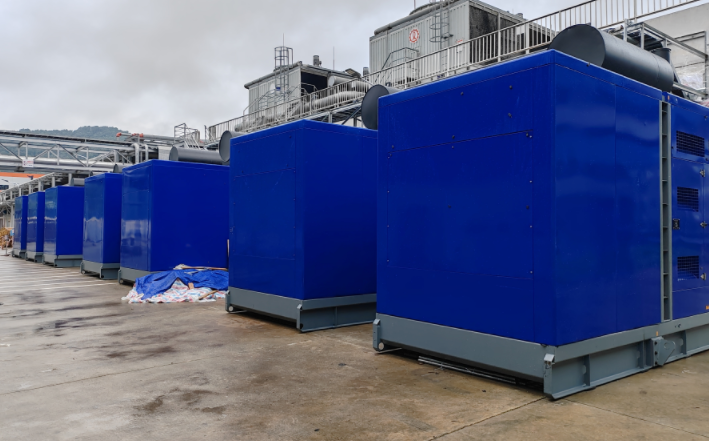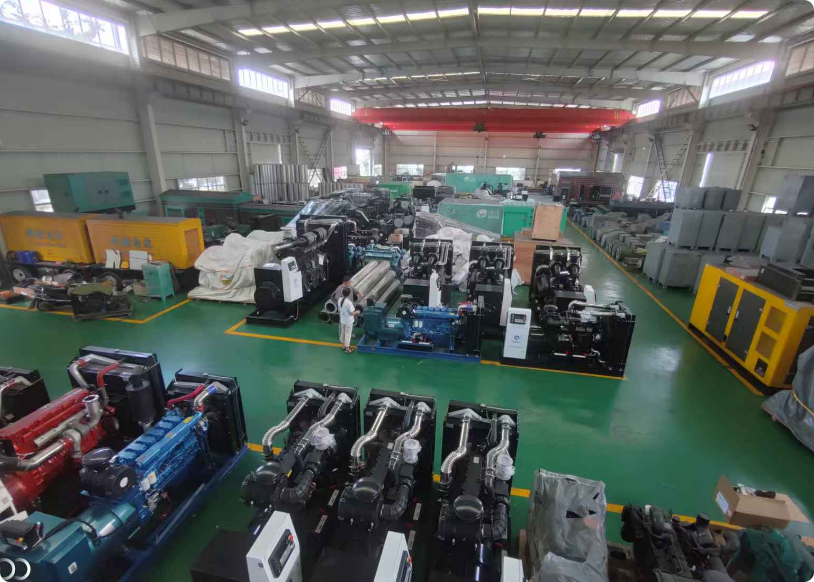News
Key Issues to Consider During Collective Debugging of Diesel Generator Sets
Diesel generator sets are crucial for providing backup power in various industries, especially during power outages. However, proper installation and debugging of these machines are critical to ensure their efficient operation and longevity. In this article, we’ll explore the key issues that must be considered when conducting collective debugging of diesel generator sets. By understanding these factors, businesses can avoid common pitfalls and ensure optimal performance.

1. Pre-Debugging Preparation
Before starting the collective debugging process, it’s essential to ensure that all components of the diesel generator set, including the engine, alternator, fuel system, and electrical connections, are properly installed and securely fastened. This step helps prevent unnecessary complications during the debugging phase.
- Check Installation: Ensure that the engine, alternator, and exhaust systems are correctly aligned and installed.
- Verify Fuel and Oil Levels: Check fuel tank levels and oil quality to ensure that the system is well-prepared for the debugging process.
- Inspect Electrical Connections: Ensure that all electrical wiring is correctly connected, and there is no sign of wear or corrosion.
2. Engine Start and Performance Testing
Once the initial checks are done, it’s time to power on the diesel generator. During this phase, special attention should be given to the engine’s start-up behavior and overall performance. The engine should start smoothly without any unusual noises or delays.
- Smooth Start-Up: Check if the engine starts without any problems. A delayed or difficult start may indicate an issue with the fuel system or electrical components.
- Monitor RPM and Load: Ensure that the generator reaches the specified RPM and is capable of handling the load without fluctuation.
3. Temperature and Pressure Monitoring
During debugging, it is important to monitor the engine’s operating temperature and oil pressure. Overheating or improper pressure levels could signal underlying issues that need to be addressed.
- Check Engine Temperature: An overheating engine could be due to insufficient coolant, malfunctioning thermostats, or an issue with the radiator.
- Monitor Oil Pressure: Proper oil pressure ensures that the engine is lubricated correctly. If the pressure is too low, it can lead to engine damage.
4. Electrical System and Load Testing
After confirming that the engine runs smoothly, the next step involves checking the electrical system. This includes testing the generator’s load capacity and ensuring that the alternator is providing stable and continuous power.
- Load Testing: Connect the diesel generator to a controlled load and check if it handles the load smoothly. Look for any fluctuations in voltage or frequency.
- Check for Voltage and Frequency Stability: Consistent voltage and frequency are vital for the safe operation of any equipment powered by the generator.
5. Exhaust and Noise Checks
Diesel generators produce significant noise and emissions, so it’s essential to check the exhaust system for any signs of leaks or blockages. A well-maintained exhaust system ensures that the generator operates efficiently and within acceptable noise levels.
- Examine Exhaust System: Ensure there are no visible signs of smoke, leaks, or unusual sounds coming from the exhaust.
- Noise Levels: Verify that the generator operates within the specified noise limits.
6. Documentation and Final Adjustments
Once the debugging process is complete, it’s important to document all testing results and make any final adjustments. This documentation helps track the generator’s performance over time and makes future troubleshooting easier.
- Record Test Results: Keep detailed records of all tests performed, including engine start-up times, load testing, and any adjustments made during the process.
- Final Adjustments: If necessary, make any minor adjustments to improve performance, such as fine-tuning the fuel system or adjusting voltage regulation settings.

Collective debugging of diesel generator sets is a critical step to ensure the equipment operates efficiently and reliably. By carefully monitoring the engine’s performance, temperature, pressure, electrical systems, and exhaust, operators can prevent potential issues and improve the generator’s lifespan. Proper debugging not only ensures safety but also optimizes the overall performance of the generator, making it an essential step in the maintenance process.
Categories
News
Contact Us
Contact: yuchai Generator Set
Phone: +86 13312561188
Tel: +86-0871-67352758
E-mail: master@zimbon.com
Add: 11th Floor, Office Building C, Shuangcheng Intercity Business Center, No. 8868 Guangfu Road, Guandu District, Kunming City, Yunnan Province, China